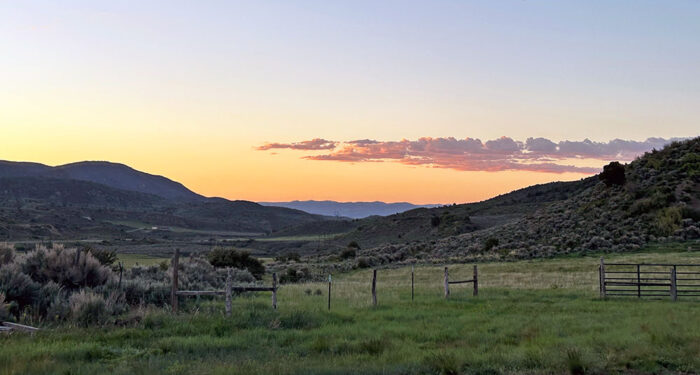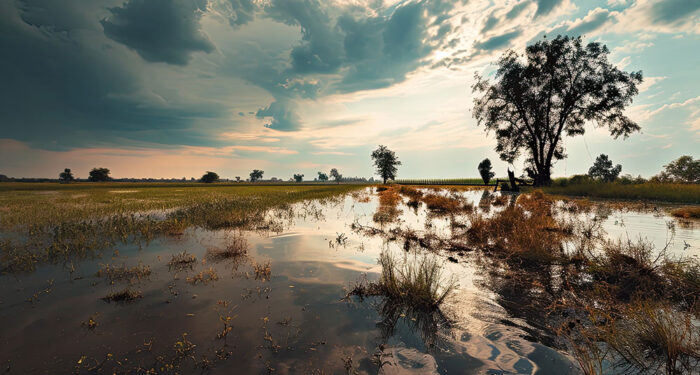Celebrating National Honey Month with the Next Generation of Beekeepers
By Taylor Epperson

Beyond producing honey, honey bees are responsible for over 80% of pollination worldwide. Without them, many of the foods we enjoy every day would be at risk, directly impacting our global food supply. Even bumblebees, often overlooked compared to honeybees, play an essential role in pollination.
For Callie, a recent graduate of Kingsburg High School in Kingsburg, California, beekeeping became more than her FFA Supervised Agriculture Experience (SAE). While many of her classmates focused on traditional livestock projects, Callie took a unique approach. She established two honey bee colonies in her family’s flower-filled garden, providing the bees with an environment to thrive. Callie’s project gave her a firsthand look at the importance of pollinators in the environment and the effect they have on agriculture.
“Bees can really increase the yield and quality of our food sources,” Callie said. “Even in our own garden, flowers grew better than they ever had once we had bees, and we didn’t change anything else.”
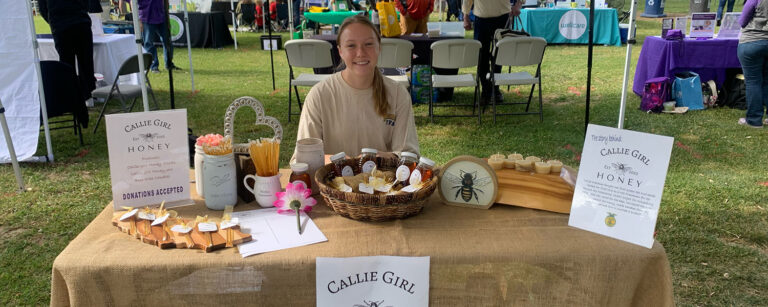
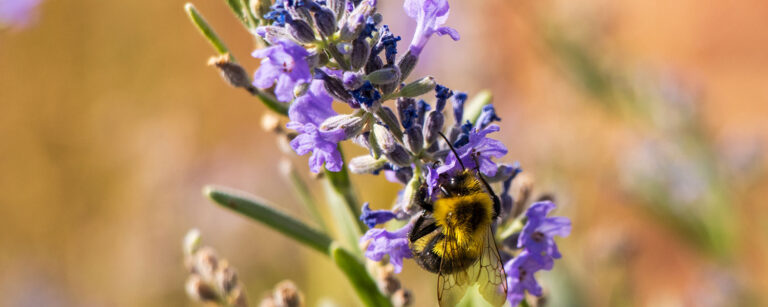
Like many others, this project had its fair share of challenges. Callie quickly learned that keeping her colonies alive requires constant attention. Although her honey bees are relatively low maintenance, her most difficult times come during the winter months. At these times, Callie has to provide the bees with sugar water, ensuring they maintain enough energy to survive the cold.
However, her biggest challenge is pests, specifically wax moths. Wax moths are an invasive species which lay larva inside of the hives, take the wax, and ultimately destroy the hive. Callie learned to inspect the health of her hives weekly, catch the signs early and get rid of them more effectively.
Callie’s hard work paid off. Because of her found passion for beekeeping, she has started her own business where she sells the honey she harvests. Callie’s hands-on experience has taught her how much she enjoys figuring things out on her own, inspiring her to look more into research. Now a freshman at Oregon State University, she is majoring in energy systems engineering.
And as we celebrate National Honey Month, we’re reminded that the work of bees extends far beyond producing honey. Through Callie’s journey, we see how caring for pollinators strengthens our food system and inspires young people to carry that responsibility forward.
“On a large scale, increased yields can help protect our food supply,” Callie said. “And we have bees to thank for it.”
So next time you drizzle honey into your hot tea or spread it across warm bread, take a moment to thank the bees.

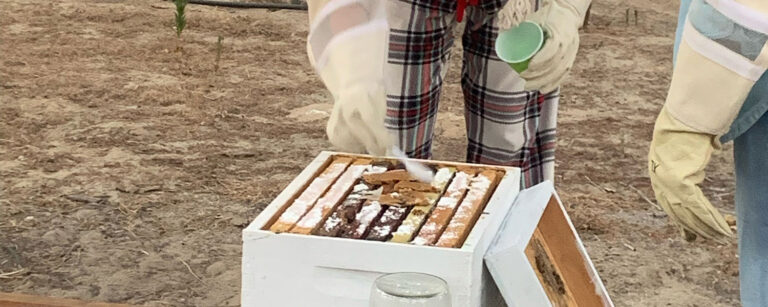
Farmers and ranchers can make a big difference with simple practices that also benefit their own operations:
Plant flowering cover crops: Crops like clover, alfalfa or buckwheat provide forage for bees.
Leave habitat space: Hedgerows and field borders create shelter for pollinators.
Provide clean water sources: Shallow troughs, birdbaths or tanks can provide bees a safe place to drink water.

